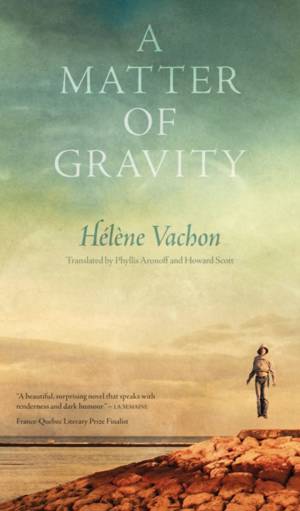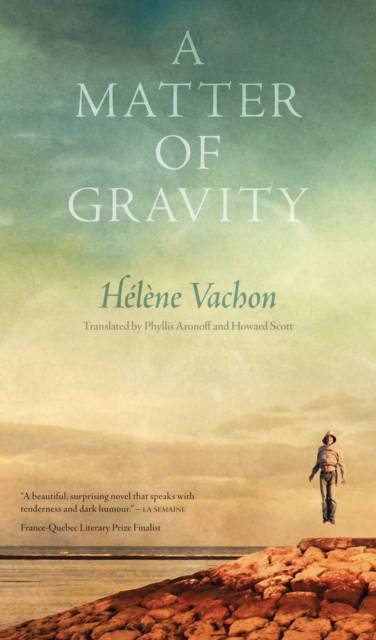
- Retrait gratuit dans votre magasin Club
- 7.000.000 titres dans notre catalogue
- Payer en toute sécurité
- Toujours un magasin près de chez vous
- Retrait gratuit dans votre magasin Club
- 7.000.0000 titres dans notre catalogue
- Payer en toute sécurité
- Toujours un magasin près de chez vous
Description
A Matter of Gravity is about the forces that draw two men together. Hermann, an embalmer and doctor's son, devotes himself to the dead to mask his disappointment that, unlike his father, he cannot cure the -living. Hu is an ailing pianist who dwells in memories of past glory. Hermann displaces his drive for perfection and order onto his elderly neighbours. Hu, ashamed of his lame, knobbed hands, rarely leaves his airless room. Hermann contends he is eternally separated from the world by a "permanent cushion of air" that keeps him wavering between two women and hovering above humanity. Hu is bound to a nightmarish reality, shuffling between emphysema, rheumatoid arthritis, and Parkinson's disease.
When a mysterious manuscript, possibly written by one of Hermann's centenarian neighbours, connects one man's routine with the other's, an extended afternoon at the park eventually leads back to Hu's piano. This marks the beginning of the men's tenuous relationship, which, while healing in nature, is made more fragile by the pianist's heightened -mortality. A Matter of Gravity is a sensitive, delicate, and humorous novel that unfolds in liminal spaces: between life and death, youth and age, earth and sky. By the end of the final, transformative meeting between Hermann and Hu, Vachon gently broaches the question that paralyzes each man and the people whom they love: When faced with terminal -illness, how do we embrace the unsatisfactory life we leave behind?Spécifications
Parties prenantes
- Auteur(s) :
- Traducteur(s):
- Editeur:
Contenu
- Nombre de pages :
- 256
- Langue:
- Anglais
Caractéristiques
- EAN:
- 9780889228405
- Date de parution :
- 03-06-14
- Format:
- Livre broché
- Format numérique:
- Trade paperback (VS)
- Dimensions :
- 127 mm x 213 mm
- Poids :
- 294 g

Les avis
Nous publions uniquement les avis qui respectent les conditions requises. Consultez nos conditions pour les avis.






